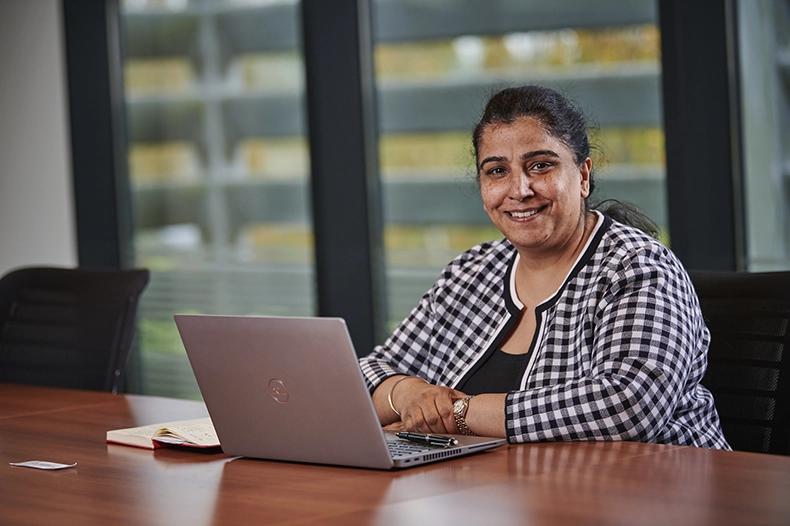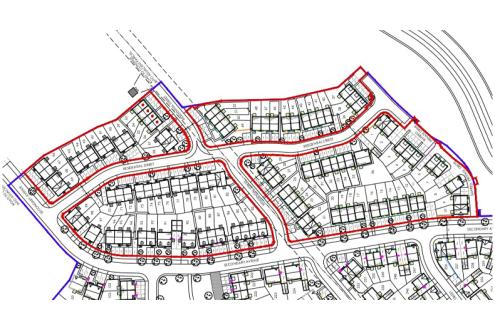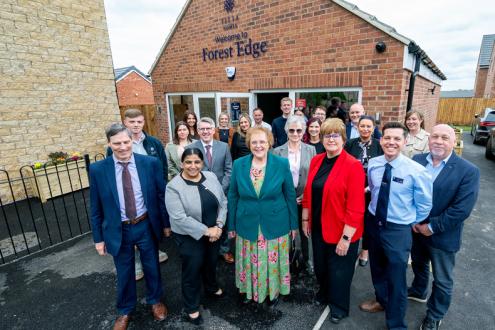11 March 2022
Women in Construction Week - Amerjit Atwal
In our final instalment this week, we hear from Amerjit Atwal, land and partnerships director for Tilia Homes Central.
Women in Construction Week highlights women as an invaluable part of the construction industry. Across this year’s awareness week which runs from 6-12 March, we will be speaking with three female members of the Tilia Homes team to raise awareness of the growing role of women in the industry and to share why they think construction presents a golden opportunity as a career choice.
How did you get into the construction industry?
When I left school at 16, I worked in a local Police Station as a typist. I then secured two weeks’ holiday cover as a typist with contractor Lovells – and that’s where my career in construction began. Hard work and diligence have always been important to me and that work ethic paid off when they created a permanent role for me. I quickly realised that I could do more than just type up orders and letters and before too long, I was doing ONC and HNC courses on day release. By the age of 24, I had progressed to an assistant buyer role.
What was your next step up the ladder?
After four years, I moved into estimating as a pre-contract estimator. This gave me more interaction with suppliers and subcontractors and I loved getting involved with bidding and maximising profits for the business. When my boss left, I was offered his role. At the time, I don’t think I had enough belief in my own abilities, and I declined the offer. Instead, I set my mind to growing into the role as I developed. In reality, I found that colleagues still came to me to make decisions and, in hindsight, I should have accepted the challenge. That was a big lesson for me.
How did your career develop from there?
I spent 10 years running a successful estimating department, winning a lot of profitable work and establishing Lovells as the partnership contractor of choice. I was a senior estimator when I was headhunted by Kier Group in 2005. To be honest, I had never entertained leaving Lovells; I was committed to the cause and thought I’d be getting my pension there. But the Kier role was a great opportunity and I eventually made the leap.
At Tilia Homes it was back to the basics. They were delivering small contracts of around 20 units and I saw an opportunity to significantly grow the profile of the regional business. I’m a commercially-minded person and was relentless in pushing for bigger deals and building our gravitas with clients and local authorities. It took some years to get there – but I was instrumental in bringing us to a point where we now have the ability to deliver major 700-unit sites, offering innovative cost solutions and managing complex pricing strategies in large scale regeneration proposals. I went from estimating director to land and partnerships director; and that’s where I am today.
Tell us about your typical day
I start each day at 8:00am and it’s all systems go. I get involved in all sorts, bringing leads in or putting bids together, weighing up cost versus risk. I’m meticulous by nature and constantly revisit things, considering what a planner will be looking for. I’ll be picking up the phone to an engineer or consultant, helping our commercial teams review quotes or working with the planning director to take schemes through the planning process.
I’ve had flexibility in my role. It was important to me to do the school run for my two children. Pausing at 3.00pm to fetch them and delivering any remaining work in my own time. I have a fierce work ethic and invest the hours past midnight or throughout a weekend when a deal is on the table.
Tell us about your favourite project you have worked on
I worked on a project in a marginal area of Bolsover which delivered 56 units including around 20 bungalows with well-sized gardens. The scheme enabled the rehousing of elderly members of the community who had been occupying homes that weren’t fit for purpose. We prioritised getting the bungalows built to rehome these people as quickly as possible, and then constructed the wider project around them.
I also helped secure our status as a funding partner for Homes England’s 2011-2015 grant programme. We were on a tight deadline, but I thrive on situations like that. I get a buzz out of a challenge and want to tackle it head on. I worked day and night on our submission and we were eventually awarded an allocation of 1,000 units (worth £21m) which effectively enabled us to grow during the recession.
What have been some of the biggest obstacles?
In my first role, being an Asian woman in the industry was unheard of. It was very ‘old school’ back then and I had to work hard to win people over. I was struck by the fact that I was frequently the only female in the meeting, but I refused to be intimidated and it never stopped me having a voice. In the end I was well respected by clients and agents.
What opportunities are there for women?
You’ll see plenty of women in admin, accountancy and functional roles. But surveying, site management, estimating and commercial roles are still male dominated so there is a big opportunity for women there. At one point we did have three female directors in our region; we were a strong team and really held our own – however I have never had a female apply for one of our training schemes, which I would love to see.
What do you think women bring to the industry?
Women have a lot to bring to the table. When it comes to negotiating, they bring a different outlook and can reach a deal collaboratively and in a positive manner. I find women to be more measured and controlled in how they handle themselves which can be of great value in difficult situations.
What is your advice to women wanting to get into construction?
You have to adopt the right attitude. Have a strong work ethic and believe in yourself fully. You will need to prove that you can do it – so be prepared to get stuck in and work that much harder.






